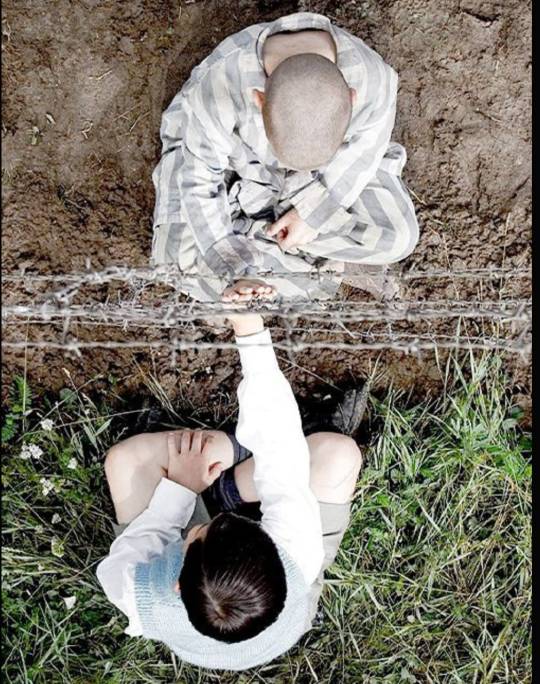#the boy striped pajamas
Text
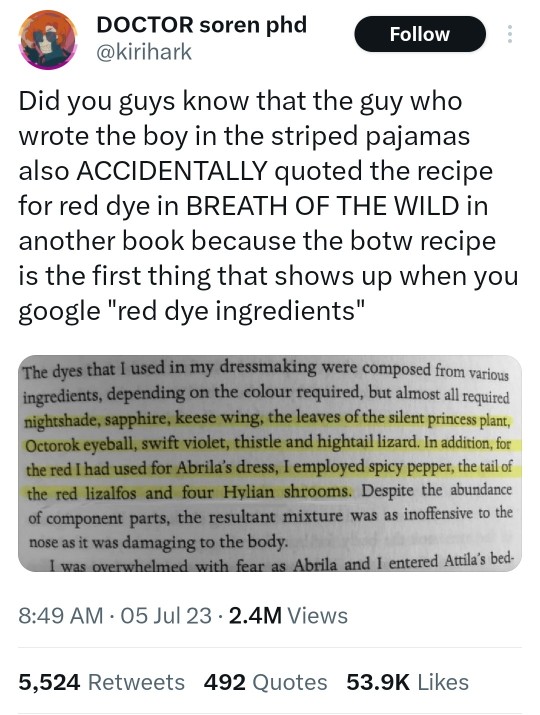
2K notes
·
View notes
Text
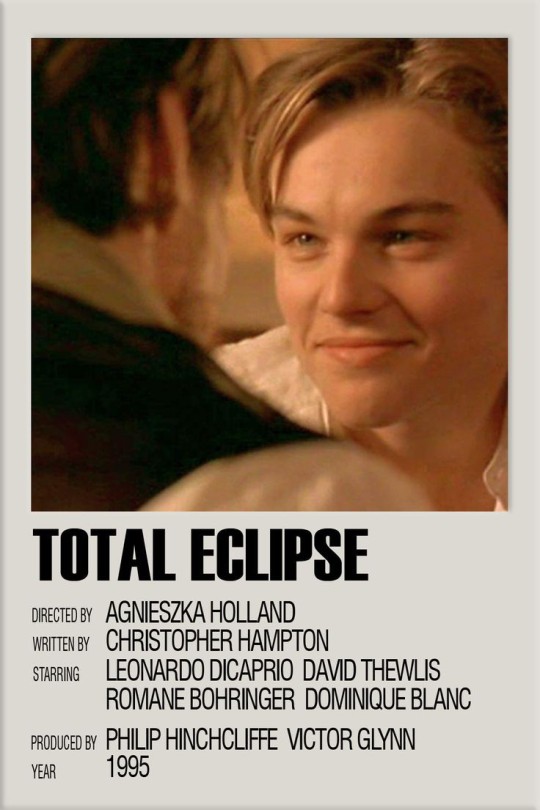
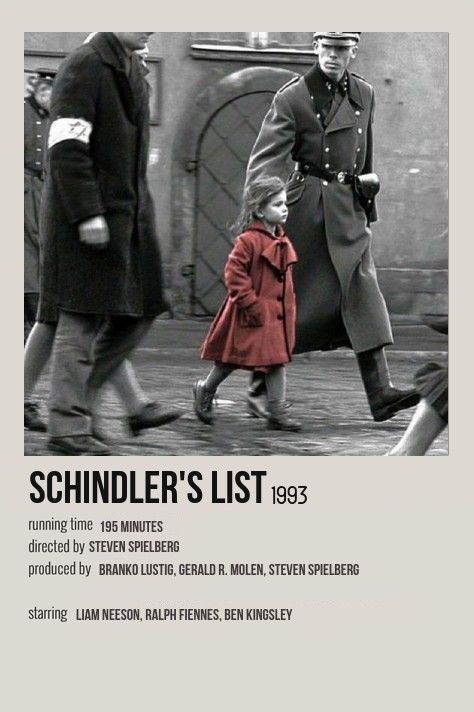


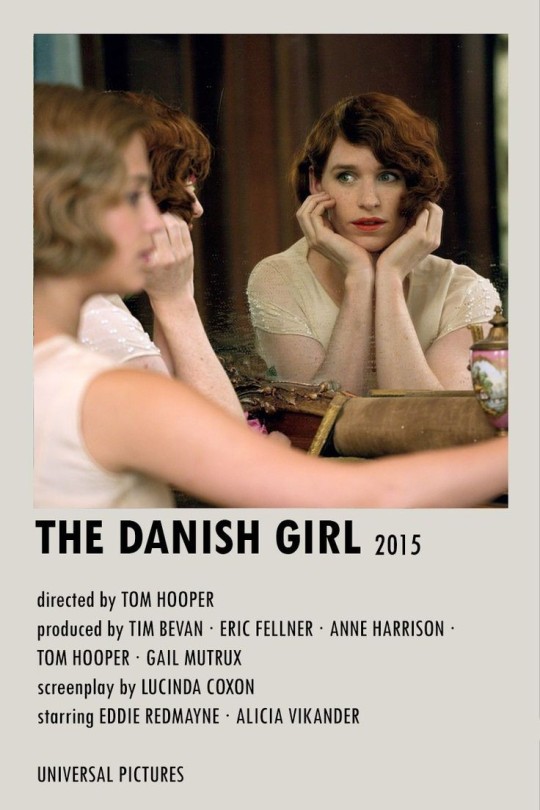
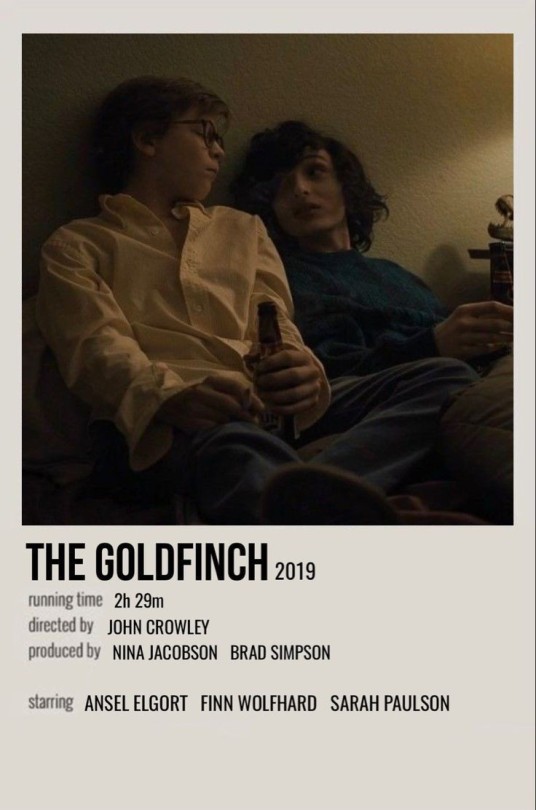

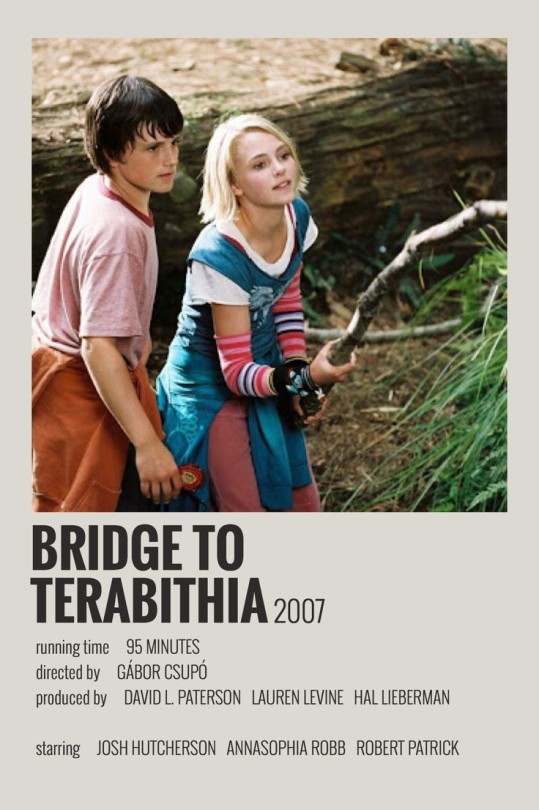
Movies you just need to watch before you die
(pictures isn't mine)
#movies#films#movie posters#total eclipse#the danish girl#pride and prejudice#the goldfinch#bridge to terabithia#the boy in the striped pajamas#the pianist#schindler's list
196 notes
·
View notes
Text
Rating movies about nazi germany I have watched
First of all, I want to make it clear that this isn't a professional review, it's only my opinion

I liked the proposal of the story being centered around a nazi family and the younger boy befriending a jew, but all of that goes down the drain due to the multiple historical inaccuracies: the children learned about nazism very early, so there is no way bruno would have been that innocent. Also, concentration camps wasn't of that much easy access. The appeal to emotion instead of actually building a deep plot also sucks. 5/10

I absolutely adored this movie, the plot is so deep, the construction around the persecution of Liesel's parents, her relationship with her adoptive parents, the brotherhood she had with the jew hiding in their house, her tough but sweet personality, her desire for knowledge. It was all so beautifully orchestrated, and also the historical accuracy>>>>>> 10/10
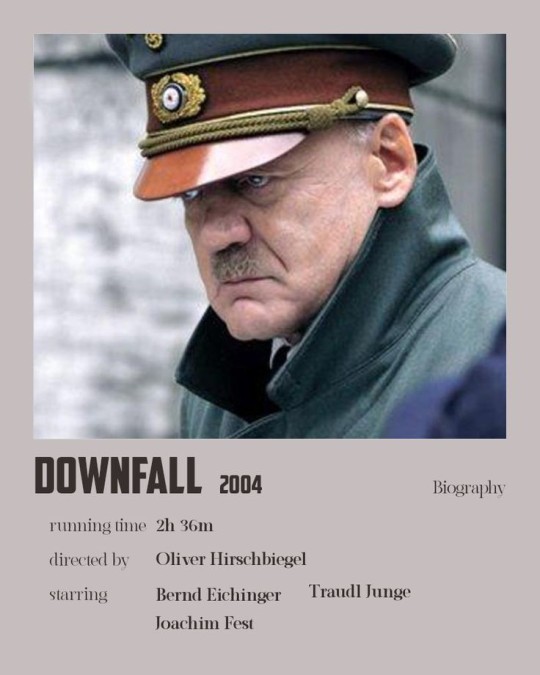
This movie will always be a classic for me. The way they portrayed nazis as they were, human, vulnerable, with a distorted view of the world but still seeking what they thought was the best. How they went deep down into the life in the bunker, the despair and hopelessness they felt. Also, the way they portrayed Eva Braun>>>> how she tried to sugarcoat everything not to suffer, how she threw parties in the hallway of death, how even in a desperate situation the greatest joy of her life was to marry the terrible man she fell in love with and was blindly loyal too. Everything is so heartbreaking and beautiful at the same time. Also, the historical accuracy is just a delight. 1000/10
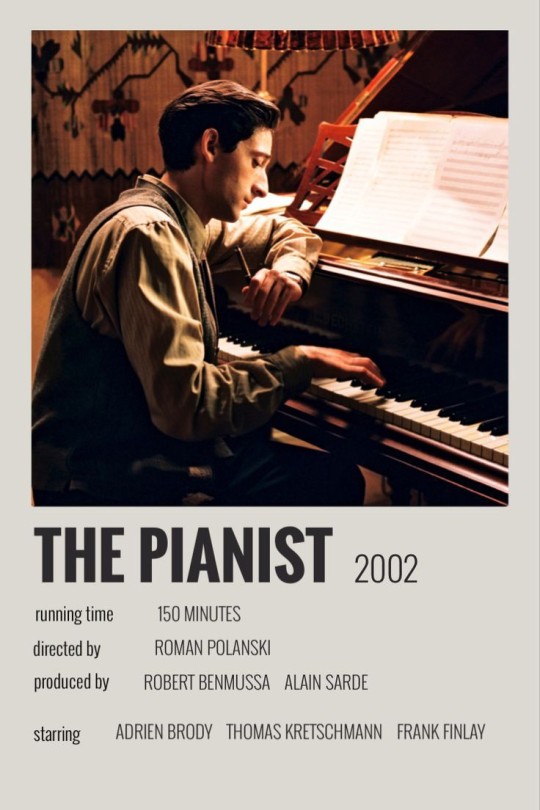
This is a true punch in the gut. The terrible way he lost his family, the inhuman life he lived in the guetto, his part in the warsaw guetto riot, how he kept his beautiful talent immaculate till the end, when he lost the love of his life and had to see her married, the hunger, mistreating and fear that were a part of his daily life, his brave survival. Everything about this movie is truly sad. 9/10
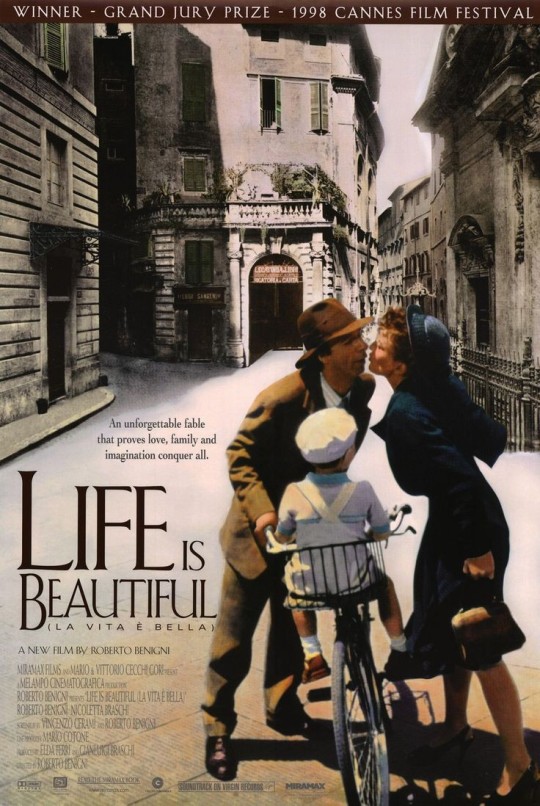
I won't even talk much about this one. I start it laughing and finished it on the verge of crying. It is funny, heartbreaking, the perfect mix between comedy and tragedy, the true definition of bittersweetness. 100/10
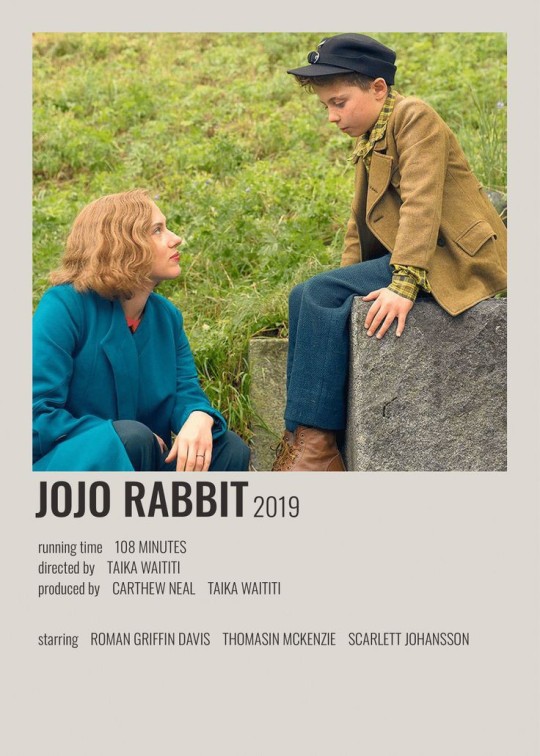
Following the same road of the last one, there's this piece of art. It had everything to go wrong, but it went beautifully. They made something outrageous turn out funny without being offensive, and yet made a deep, tragic and beautiful story. The underlying romance between that ex-soldier and his assistant, the way jojo changed his mentality gradually, and his absurd view of hitler. It was surprisingly very historically accurate, but Im still confused about: how was jojo not sent to an orphanage after his mother died? How did he survive on his own? Anyways, this was a negative point for me, but still love it. 50/10

Okay, I absolutely love this one, but hate to death how they slipped over such simple aspects, like Hitler's personality. They made him hit a dog when in fact he defended animal's rights, they made him not give a shit about his mom being ill when in fact he loved her dearly. They changed his personality to make him seem even more evil. But, I also have plenty of positive points to talk about. I rarely see movies portraying Hitler's early life the way this one did, and how he ascended gradually to power. I love this miniseries deeply for getting into details about his whole life. They even aborded his abusive relationship with his niece. I can almost forgive the outrageous innacuracy with the characters and the altering of some details (how he earned his iron cross, how he met eva braun, how he treated fuschl), and I love it despite its defects. It also has some iconic scene: the bar fight, the munich beer hall putch, the trial. I wish I could give a 1000/10, but because of its innacuracies im giving it a 500/10

Nazis getting brutally slaughtered. Do I really have to say anything else? Also, Hans Landa>>>>>>>> ∞/10
#ww2 germany#austrian painter#eva braun#geli raubal#ww2#reichblr#world war 2#germany#the boy in the striped pajamas#the book thief#the pianist#inglorious basterds#the rise of evil#downfall#jojo rabbit
52 notes
·
View notes
Text
#literature#books#book deaths#spoilers#harry potter#bridge to terabithia#anne of green gables#lord of the flies#little women#percy jackson#to kill a mockingbird#the book thief#the boy in the striped pajamas#the hunger games#the song of achilles#polls
35 notes
·
View notes
Text
i understand that everyone has their preferences but i don't think i will ever see the day where i get revali simps. like how the hell am i supposed to take that guy seriously when he looks at me from the front like

#and now I have to explain to my english teacher why I drew this thing on the back of my paper about The Boy In The Striped Pajamas. frabjous#legend of zelda#botw#breath of the wild#age of calamity#aoc#revali#loz revali#silly post
21 notes
·
View notes
Text
So.
I’m not Jewish. As you know. (I was raised Catholic if you’re curious. But that’s not strictly relevant to this post)
But, speaking as someone who has a degree in history and who has read up a LOT about the Holocaust (and the Armenian Genocide).
I can’t help but find The Boy in the Striped Pajamas to be a shameful piece of work.
(I like how the kid refers to Hitler as The Fury but that’s it)
Now I have no issue with writing fiction about a genocide. None at all. The Forty Days of Musa Dagh by Franz Werfel springs to mind as well as Maus, among others.
That is not the issue here.
Rather it comes from other aspects of the work.
(WHAT DO YOU MEAN THE AUTHOR WROTE A SEQUEL????????!!!!!!!!!)
For one, there are quite a few historical inaccuracies. Normally I can look past such things in fiction, but NOT when it comes to subjects like genocide or persecution.
Doing this risks spreading disinformation, misconceptions or LIES!
As well as a false equivalency between the victims and perpetrators of genocide.
It fuels the disgusting myth that the German people were completely in the dark about the Nazi persecution of Jews (and others like Romani people), they weren’t.
Sure they didn’t have all the facts but they knew for DAMN aside that Jews were being sent away and killed somewhere.
In turn this feeds the myth of the German people bearing little to no responsibility for the genocide and that they were brainwashed.
Endearing sympathy to them in turn. Which isn’t a good idea in my mind. Oh no. This leads to absolving them of any blame.
While there was propaganda and indoctrination the fact remains that many people were more than willing to be complicit in such atrocities. (No I wouldn’t, get off your high horse!)
These myths and misconceptions have become QUITE widespread and have done immense harm to Holocaust education and perhaps even to genocide studies as a whole.
And one can’t forget how the book tries to make one feel sympathy for Nazi SS officers and prison guards. BAD idea!
And no I’m not calling for anyone to harass the author of the book. That’ll only lead to trouble.
I just felt like I had to say this much.
Again I’m no expert.
I’m just working with what I know.
I’ll leave a few articles below sharing my sentiments, they might articulate my points better.
Feel free to reblog.
#dougie rambles#personal stuff#political crap#literature#history#the holocaust#genocide#academics#vent post#myths#lies#misconceptions#bullshit#the boy in the striped pajamas#i feel sick#armenian genocide#historical inaccuracies#education#persecution#ignorance#feel free to reblog#reblog this#reblog the shit out of this#false equivalence#rant#long post#antisemitism#tw antisemitism mention#jewish history#european history
21 notes
·
View notes
Text
For those interested, here's my essay on the inaccuracies within John Boyne's "The Boy in the Striped Pyjamas" and the damage the book/film do to Holocaust education. The essay is formatted as a hypothetical letter to a person who might have the ability to make positive change in response. All credit for this essay belongs to me, and I have included my bibliography at the bottom.
Dear Dr. Miguel Cardona,
It’s been 90 years since Adolf Hitler came to power and the Holocaust began. In that time, myths, fallacies, and outright denial of the genocide have spread past the fringes of societies and moved into the mainstream. Study after study finds that knowledge about the Holocaust is not only waning, but false beliefs are becoming more common (Schoen Consulting) (Alper). Much of the ignorance propagating these beliefs is beginning in schools, and, though introducing the subject at its most honest is not appropriate for young ages, beginning education early is critical to students with no connection being able to understand the historical event. Unfortunately, John Boyne’s The Boy in the Striped Pyjamas, one of the most common books used in early Holocaust education, has instead been found to create more fallacies about the subject about which it’s supposed to educate. As a result, Boyne’s book works against the teaching of this part of history. I ask you and The Department of Education to make a statement and discourage the use of The Boy in the Striped Pyjamas in early Holocaust education.
The inaccuracies in The Boy in the Striped Pyjamas begin in the characters. As a 9-year-old German boy and son of a high-ranking Nazi official, Bruno might have been preparing to join the Hitler-Jugend, known also as Hitler Youth, though it’s more likely he already would have been a member. In addition, he would have been entrenched in academic propaganda where “The Jew [was] held up to the children of Germany as the target for this racial hatred and vindictiveness” (Kunzer, 146). The apparent case of Bruno not even knowing what a “Jew” is (Boyne, 95) adds to the falsehoods creating the character. Though this is an extreme example, inaccuracies like this aid in the common myth that Germans didn’t know the events occurring or the actions against Jewish people. In reality, propaganda against Jews was baked into every aspect of society and easily observable at the time, such as in Kunzer’s report. Germans knew that the Jewish people were being removed from society, and most supported it or were at least ambivalent. There would have been no friendship between Shmuel and Bruno, and certainly not one based off Bruno’s ignorance when history has made it clear he would have seen the Jews the way almost all Germans did: as the enemy.
It’s also highly unlikely that Shmuel, as a 9-year-old Jewish boy, would be alive in Auschwitz. Though no specific camp is specified, Bruno’s perspective has the characters solely referring to the location as the mispronunciation “Out-With”, such as on page 28, suggesting the camp being Auschwitz despite the setting descriptions being inaccurate to that location. Officially, records found about 23,000 young people were registered in the camp (Fate of children in Auschwitz), with about 500 under 15 being liberated by Soviet Soldiers and most having had only been in the extermination camp a few months (The fate of the children). Children in extermination camps like Auschwitz-Birkenau were often only spared for one of two reasons. One, they were deemed able enough to be used for labor (which was used both for construction and production and as another method to kill the prisoners within the camp), or, two, they were used for the human experiments which took place within the camp (Children During the Holocaust). Even then, it’s likely Shmuel would have been sent to the gas chamber upon arrival. The lack of historical accuracy involved in Shmuel’s character creates the idea that there was any sort of childhood within Auschwitz. The children who were spared were not children, but numbers. The falsehoods take away the brutality of the Holocaust, padding it and making it gentle - not to make it acceptable to young readers, but instead to rewrite it.
I understand my allegations of the damage The Boy in the Striped Pyjamas can and has done to modern youth’s understanding of the Holocaust might seem like extrapolation, but multiple studies have found children believe fallacies which stem directly from this book or its film adaptation. The majority of studies on impact seem to be done in England, but their findings are concerning nonetheless considering the book and film’s widespread use in America. In one study, Dr. Michael Gray looked at 298 eighth grade-equivalent students in four English schools “who had not previously studied the Holocaust in history at secondary school level” (Gray, 114). 12.8% of students directly referenced The Boy in the Striped Pyjamas when talking about their previous knowledge about the Holocaust (114), with some students mentioning the film’s “great insight” (115) and others mentioning the fictionality while saying many events are still factual (116). This seemed to be a trend; the fictionality was acknowledged, but many aspects in the story were nevertheless upheld as truth (116-117). Even with the book's identification as "A Fable" (Boyne, 1) it was also found some pupils believed it was true (116, 117). From misconceptions about deportations (119) to having complete misunderstanding about the roles of Sonderkommando (120-121), The Boy in the Striped Pyjamas seems to have wrought havoc on many students’ understanding of the Holocaust.
The most worrying impact of The Boy in the Striped Pyjamas is the Nazi sympathy it seems to induce. The finale of the book and film are likely the primary sources as the ending sees Bruno killed after mistakenly going into a gas chamber with Shmuel and several other prisoners. These final chapters, 19 and 20, focus not on the camp or the purposeful murder of Jewish people, but instead on the grief of Bruno’s family and their new victimhood as a byproduct of the system from which they benefitted. The entire focus is taken from the Jewish people forced into the gas chambers with the goal of extermination and instead shifted onto the Nazis, looking solely at their sadness – the camp is depicted victimless until a Nazi’s son is the victim. This perhaps is what creates results seen in studies like the University College London Centre for Holocaust Education’s study on students’ knowledge of the Holocaust (Foster) which included a section on the impacts of The Boy in the Striped Pyjamas. The study noted students saying things such as “...it doesn’t matter who was the bigger victim, they were all still victim of Hitler’s control in some shape or form” and “Yes, it is too easy to feel sorry for the Jews in the film” (Foster, et al., 93) which were directly fuelled by the book or film. To place Jewish people and Nazis as equal victims of the Holocaust is to distort the history. The intentionality of targeting the Jewish people (and others, such as Romani people) needs to be understood to teach students to recognise the scapegoating and dehumanisation that can precede similar disasters. Despite the subject matter, The Boy in the Striped Pyjamas causes students to disengage entirely with the Jewish people impacted and instead turn their sympathy towards the Nazis, erasing the victims from their own genocide.
John Boyne is not unaware of the criticism of his book which has come from sources like Maus author Art Spiegelman (Lapin) and the Auschwitz Museum and Memorial (Auschwitz Memorial). In response to this criticism, Boyne told The Guardian, “...my novel, which, of course, was a work of fiction... therefore by its nature cannot contain inaccuracies, only anachronisms, and I don’t think there are any of those in there” (Flood). I have already pointed out numerous inaccuracies within the work. In addition, the allegation that historical fiction is somehow immune to inaccuracy is so flagrantly false that I struggle to understand how one could even make that statement. Though I could go into the myriad of ways historical fiction can absolutely be inaccurate, Dr. Michael Gray articulated it better when he said “...any author or film maker who chooses to use the Holocaust as their context, especially one who sets the film around a commandant and Auschwitz, is, whether they recognise it or not, producing a Holocaust story” (Gray, 125). It doesn’t matter what Boyne believes or how he views the falsehoods in his book when historians, impact studies, and a myriad of other sources prove the book incorrect as well as harmful. An author, even of historical fiction, cannot negate the facts - especially when their chosen setting has come to define a genocide.
Dr. Cardona, John Boyne’s The Boy in the Striped Pyjamas contains inaccuracies which actively work against the education it claims to bolster. Discouraging the use of this book in Holocaust education in favor of options like Susan Goldman Rubin’s The Cat with the Yellow Star: Coming of Age in Terezinor Anne Frank’s well known The Diary of a Young Girl is to eliminate a creator of many of the Holocaust myths which historians and Jewish groups work to combat. Thank you for your consideration.
Sincerely,
J
Bibliography
Alper, Becka A., et al. “What Americans Know About The Holocaust.” Pew Research Center, Jan 2020. Accessed 29 Oct 2023.
“Auschwitz-Birkenau.” My Jewish Learning, https://www.myjewishlearning.com/article/auschwitz-birkenau/. Accessed 15 Oct 2023.
Auschwitz Memorial [@AuschwitzMuseum]. “We understand those concerns, and we already addressed the inaccuracies in some books published. However, “The Boy in the Striped Pyjamas” should be avoided by anyone who studies or teaches about the history of the Holocaust.” X, 5 Jan 2020, https://twitter.com/AuschwitzMuseum/status/1213807345932931072. Accessed 3 Oct 2023.
Boyne, John. The Boy in the Striped Pyjamas. Black Swan Edition, David Fickling Books, 2007. https://archive.org/details/the-boy-in-the-striped-pijamas/mode/1up. Accessed 22 Oct 2023.
“Children During the Holocaust.” My Jewish Learning, https://www.myjewishlearning.com/article/children-during-the-holocaust/. Accessed 15 Oct 2023.
“The fate of the children.” Auschwitz-Birkenau Memorial and Museum, https://www.auschwitz.org/en/history/fate-of-children/the-fate-of-the-children/. Accessed 15 Oct 2023.
“Fate of children in Auschwitz.” Auschwitz-Birkenau Memorial and Museum, https://www.auschwitz.org/en/fate-of-children-in-auschwitz/. Accessed 15 Oct 2023.
Flood, Allison. “The Boy In The Striped Pyjamas author defends work from criticism by Auschwitz memorial.” The Guardian, 7 Jan 2020, https://www.theguardian.com/books/2020/jan/07/john-boyne-defends-work-from-criticism-by-auschwitz-memorial. Accessed 22 Oct 2023.
Foster, Stuart, et al. “What do students know and understand about the Holocaust? Evidence from English secondary schools”. University College London Centre for Holocaust Education, 2016, https://discovery.ucl.ac.uk/id/eprint/1475816/14/Foster_What-do-students-know-and-understand-about-the-Holocaust-2nd-Ed.pdf. Accessed 29 Oct 2023.
Gray, Michael. “The Boy in the Striped Pyjamas: A Blessing or Curse for Holocaust Education?”. A Journal of Culture and History, vol. 20, no. 3, 2014, pg. 109-136, https://gcedclearinghouse.org/sites/default/files/resources/The%20boy%20in%20the%20striped%20pyjamas.PDF. Accessed 22 Oct 2023.
Kunzer, Edward J. “‘Education’ Under Hitler.” The Journal of Educational Sociology, vol. 13, no. 3, 1939, pp. 140-147. JSTOR, https://doi.org/10.2307/2262306. Accessed 15 Oct 2023.
Lapin, Andrew. “Art Spiegleman, speaking to Tennesseeans, says ‘Maus’ controversy is ‘about controlling’.” Jewish Telegraphic Agency, 7 Feb 2022, https://www.jta.org/2022/02/07/united-states/art-spiegelman-speaking-to-tennesseeans-says-maus-controversy-is-about-controlling. Accessed 3 Oct 2023.
Schoen Consulting. “Holocaust Knowledge and Awareness Study.” Conference on Jewish Material Claims Against Germany, 2018, https://www.claimscon.org/wp- content/uploads/2018/04/Holocaust-Knowledge-Awareness-Study_Executive-Summary-2018.pdf. Accessed 29 Oct 2023.
27 notes
·
View notes
Text
tag game cuz why not?
show me two friendships that are so wholesome that you wanna cry over them and question why everyone's so mean nowadays:
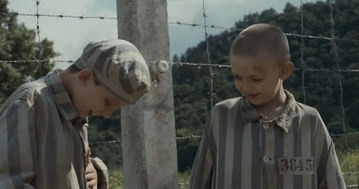

tagging:
@jade-green-butterfly @babsvibes @pinkbumblebees aaand anyone who would like to do it :)
#tag game#the boy in the striped pajamas#bluey#rusty bluey#jack and rusty#i love them sooooo much#too cute
8 notes
·
View notes
Note
ooo give the ww 2 book recs! ww 1 too if u want :3
Hey there, anon. Here are my recommendations. Unfortunately, these are only WW2 books, I couldn't find any on WW1.
↳ Once - Morris Gleitzman
Honestly, I feel like this is one of those books that just stick with you forever, it's what got me into starting to research WW2 and now here I am. The main character is a 10 year old Jewish boy in Poland called Felix, there's an entire series of this book following Once, so you really get to witness Felix grow over the years and sympathize with him. The entire series just hit so hard, man. I couldn't recommend this book any more than I already am, if you see this on the shelves, please buy it along with the other books of the series. It will always be my number one WW2 book to recommend.
↳ The boy in the striped pyjamas
You've most likely already heard of this book a hundred times over, but I loved this one. It's about an 8 year old German boy, Bruno who moves to Auschwitz and meets a Jewish boy, Schmuel. They form a meaningful friendship that stays until the end of the book that you will treasure yourself. It's extremely morbid and depressing to read, and the writing style I find is similar to 'Once' and it just sticks with you too. It's just got a ring to it that none of the other books on WW2 I have read have.
↳ Rabbit, Soldier, Angel, Thief
This book is actually set in Russia, about a six year old boy named Sasha and his experience with the German attacks on Russia and his town. Really amazing book, please check it out. It gives you some understanding of Russia's perspective during WW2
↳ 28 days
↳ The tattooist of Auschwitz
#reichblr#ww2 germany#ww2 history#the boy in the striped pajamas#I do NOT tolerate hateful ideologies
10 notes
·
View notes
Text
the boy in striped pajamas: my sentiments
rating: 9.8/10
warnings: spoilers ahead + emotional damage (be prepared)

this was in my bucket list for quite some time, and i’ve only gone around to watching it a few days ago. to be frank, i’m still recovering, and i’ll probably never truly recover from this drastically touching cinematic masterpiece.
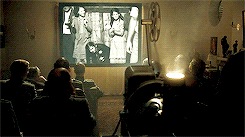
bruno was the son of an auschwitz’s commandant who moved his family to the countryside for work duties. in my eyes, bruno’s character was so beautifully human. unbothered by the atrocities currently happening, he remains curious and compassionate within his little bubble of innocence. he questions unashamedly, about the strange horrid smell coming from the “farm's” chimneys, (from the burning of jews), about the numbers on shmuel’s so-called pajamas (a jewish boy whom he had befriended).

unfortunately, purity never sustains in our blood-wrenched world. in the end, bruno’s death was a karmic result of the nazi regime, and his father’s ignorance and failure to protect him. it saddens me deeply knowing he died believing his father was a rightful man. he died thinking he’d find shmuel’s father in the concentration camps. he died so unknowingly. what breaks me the most, was he died gripping the hands of his beloved friend, shmuel, inside that gas chamber. i’m not lying when if i tell you i cried for three hours straight after this movie. it’s infuriating, knowing this wasn’t just made-up, stuff like this has happened, and honestly, they’re still happening! how could anyone let these children be stripped away of their humanity and futures like this? how does ethnic identity completely decide your social mobility? how is it justifiable in any way for genocide to even be worshipped?

therefore it’s such a provoking thought knowing if we could just entirely eradicate everything we’ve known about something and approach it through our intrinsic nature, perhaps we would've been so much more connected to our roots: to merge into a mere species, the human race. sometimes i wonder if current and past societies removed all the societal structures, the ingrained bigotries and biases within themselves, would racism and exclusion of marginalized groups ever exist in the first place? would i be able to kiss a person without the fear of being discriminated against? would the gender wars between man and woman become an incomprehensible notion? would we be able to finally collectively strive for the common greater good? would the generation of our offspring still have to worry about whether they’re going to be competent enough for the work market? so many questions and none can be answered. so many voices and none were heard. so many potentials, but none fulfilled.

overall, the film articulately depicts the true horrors of war and the tragic consequences it enforces. every scene was so raw, so full of emotions and authenticity. i would watch this again, probably just to feel something, even if i might be more emotionally damaged from being reminded of the devasting aftermath of bruno and shmuel’s forbidden comradeship.

#the boy in the striped pajamas#film review#love this movie#war crimes#auschwitz#gas chamber#jewish#writing#essay writing#essay#things to think about#literary analysis#sad movies#war movies#documentary#books#bookblr#writeblr#poets and writers#writerscommunity#creative writing#poetry#emotional#emotions#life#movies#movie review#moviegifs#cinema#cinematography
8 notes
·
View notes
Text
If you start to read this book, you will go on a journey with a nine-year-old boy named Bruno. (Though this isn't a book for nine-year-olds.) And sooner or later you will arrive with Bruno at a fence.
Fences like this exist all over the world. We hope you never have to encounter one.


#book: the boy in the striped pajamas#author: john boyne#genre: historical fiction#genre: young adult#year: 2000s#// i watched the movie in middle school and it made me sob
7 notes
·
View notes
Text

#xodiac beomsoo#kim beomsoo#kpop idols#cute guys#cat ears#cat boy#tail#animal#animal ears#fox tail#fox ears#fox boy#silk pajamas#striped#cute pjs#xodiac#kim beomsu#pet boy#kpop boys#silky
8 notes
·
View notes
Text

there is no feeling like diving into the pages of a book
#booksbooksbooks#the song of achilles#to kill a kingdom#a little life#where the crawdads sing#home#the boy in the striped pajamas#love#pinterest#aesthetic#happiness#beauty#fictional worlds#comfort
44 notes
·
View notes
Text

Read of The Boy In The Striped Pajamas by John Boyne (2006) (216pgs)
3 notes
·
View notes
Text
LOOK AT WHAT JUST ARRIVED !!

#reading#books#dead poets society#the boy in the striped pajamas#fahrenheit 451#the chrysalids#classic literature
18 notes
·
View notes


